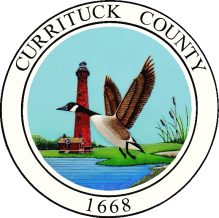Determine Your Risk
Questions To Consider When Determining Your Risk
-
Do you live in a flood zone?
Look up your flood risk on North Carolina Flood Risk Information System.
Consider purchasing flood insurance even if you don’t live in a flood zone.
-
Do you live in a community that may become inaccessible due to flooding?
Several communities in the County, including Knotts Island, Bells Island, and Waterlily are only accessible by a low-lying causeway or bridge. These areas can be cut off due to heavy rainfall and wind driven flooding.
The 4-wheel drive area can also become inaccessible during period of high tide and during coastal storms.
-
Is your home structurally sound?
Be aware or your surroundings and consider how the natural environment may impact the safety of your home.
-
Is your home in a heavily wooded area?
Be aware or your surroundings and consider how the natural environment may impact the safety of your home.
-
Do you have an access or functional need (i.e. interpreter, wheelchair bound, etc.)?
After a disaster, you may not have access to a medical facility or even a drugstore, so it’s crucial to Make A Plan for the resources you use regularly BEFORE a disaster.
For example: If you are on medication ask your pharmacy to fill your prescription early to ensure that you have enough medication during the storm and for several days to follow.
-
Do you require electricity for health-related reasons (i.e. refrigeration for medication or oxygen dependent)?
We often lose electricity during storm events. If you require electricity consider installing a whole house generator or evacuating to a safe area with reliable power.
-
Do you have the resources to sustain yourself and/or your family for 72 hours?
You should have enough food, water, and supplies to sustain yourself for 72 hours. See our suggestions for an emergency supply kit.
-
Are you able to stay with family or friends?
We encourage you to have a conversation with family members & friends before a storm hits to ensure you have a place to go.
-
Do you have pets?
It is important to include an Emergency Plan for your pet with your family disaster plan.
-
Are there young children or elderly individuals in your home?
Make special considerations for children and the elderly during emergencies and disasters.
For example, loss of electricity during periods of extreme heat or cold can be difficult for children and the elderly.
Make your Family Disaster Plan BEFORE an emergency.
-
Do you have reliable transportation?
The County may be able to assist you if you have limited transportation resources and would like to evacuate prior to a storm.
Contact Currituck County Emergency Management for more information.
-
What does a state of emergency mean to me?
Under North Carolina law, a state of emergency declaration may be issued when state or local officials make a determination that an emergency situation exists. A state of emergency can be declared by:
- the Governor,
- the General Assembly,
- a city council or mayor,
- or a county board of commissioners or chairman (GS 166A-19.3(19)).
An emergency exists when there is “an occurrence or imminent threat of widespread or severe damage, injury, or loss of life or property resulting from any natural or man‑made accidental, military, paramilitary, terrorism, weather‑related, public health, explosion‑related, riot‑related cause, or technological failure or accident, including, but not limited to, a cyber-incident, an explosion, a transportation accident, a radiological accident, or a chemical or other hazardous material incident” (GS 166A-19.3(6), amended by SL 2016-87, s. 5).
So, if local officials find that any of these conditions exist within their jurisdiction at the present time or are imminent, they can make a finding to this effect and declare a state of emergency.

